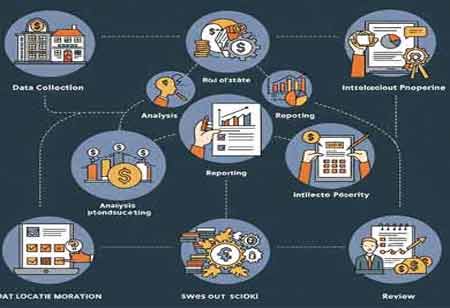CLOSE
Specials
- RegTech Europe
- Financial Risk Management APAC
- Investment Banking APAC
- Corporate Advisory APAC
- Regtech APAC
- Escrow Services
- Digital Banking Latam
- Trading Solutions APAC
- Treasury Management Europe
- CPA Firms Canada
- Financial Risk Management Europe
- Mortgage Broker
- Financial Licensing Europe
- RIA Advisory Europe
- FinTech Canada
- Financial Asset Management APAC
- Investment Banking Canada
- Payment Solution
- Lending Mangment Latam
- Payment Solution Europe
- Broker Dealer Firms Canada
- Alternative Investments Canada
- Financial Fraud
- Investment Management Latam
- Financial Health Europe
- Lending mangment
- Financial Marketing
- Proprietary Trading Europe
- Wealth Management
- FinTech
- Financial Brokerage Firm APAC
- Investment Advisory Europe
- Investment Advisory APAC
- Wealth Management MENA
- Claim Adjusting
- Claim Adjusting APAC
- Mergers and Acquisitions Consulting APAC
- Equipment Financing
- CPA Firms
- Mergers and Acquisitions Consulting Canada
- Investment Services
- Valuation Services Canada
- Wealth Management APAC
- Broker Dealer Firms
- Debt Collection Agencies
- Mergers and Acquisitions Consulting
- FinTech Europe
- Fintech Latam
- Financial Planning / Retirement
- Investment Management
- Financial Compliance
- Digital Banking Europe
- CFO Services
- Debt Collection Agencies Europe
- Wealth Management Europe
- Mergers and Acquisitions Consulting Europe
- Financial Restructuring Europe
- Financial Portfolio Management Canada
- Business Loan
- Payment and Card Latam
- Wealth Management Latam
- Mergers and Acquisitions Consulting Latam
- Tax Advisory Canada
- Trading Solutions Europe
- Alternative Investments
- Digital Insurance Europe
- Investment Services Latam
Weekly Brief
×Be first to read the latest tech news, Industry Leader's Insights, and CIO interviews of medium and large enterprises exclusively from Financial Services Review
Thank you for Subscribing to Financial Services Review Weekly Brief
Phishing in Singapore's eCommerce Targeting Financial Information
According to Kaspersky's most recent data, as in 2021 and 2020, phishing schemes related to online shopping continue to outnumber those involving banking and payments.

By
Financial Services Review | Wednesday, November 09, 2022
Stay ahead of the industry with exclusive feature stories on the top companies, expert insights and the latest news delivered straight to your inbox. Subscribe today.
According to new data from Kaspersky, financial-related phishing targeting eCommerce is on the rise in Singapore.
FREMONT, CA: According to Kaspersky's most recent data, as in 2021 and 2020, phishing schemes related to online shopping continue to outnumber those involving banking and payments. Phishing is still one of the most common types of cybercrime since it requires little effort, has a high success rate, and has a lot of financial gain potential.
The data shows a nearly 50 per cent increase in e-commerce-related phishing attempts in Singapore, from just 12,185 occurrences in Q1 2022 to 17,800 attacks in Q2 2022. The country's approaching mid-year to year-end shopping season and the loosening of border controls could be responsible for the quarter-over-quarter increase.
Phishing assaults, including eCommerce, increased by 170 per cent globally, from 2,790,774 in Q1 2022 to 7,523,412 in Q2 2022. These statistics are derived from anonymized data based on user PCs activating Kaspersky's Anti-Phishing system's deterministic component. As long as links to these URLs are found in the Kaspersky database, the component can identify any phishing-related pages a user has attempted to access online or through an email message.
Phishing attempts involving banking decreased by nearly 55 per cent quarter over quarter this year. This could be attributable to people becoming more aware of bank-related phishing schemes. The Anti-Scam Command (ASCom), which collaborates with more than 80 institutions in the fight against scams, was just made operational by the Singapore Police Force. These included domestic and international banks, card security organisations, and fintech firms.
Inherently easy setups that take advantage of victims when they least expect it is frequently the foundation of phishing. Long-lasting habits that consumers have acquired over the past three years still exist as countries in the area lift the last of their pandemic restrictions, one of which would be internet shopping for food, everyday essentials, and everything in between.
Although borders in Southeast Asia were reopened in the first half of the year, pandemic patterns appear to have persisted. Regulators and business leaders in the area support Southeast Asia, which is digitally advanced. To eliminate problems with currency exchange, countries in this region are ready to integrate their QR code payment systems before the year is out.
Now that the majority of users are aware of the dangers posed by online money, it is important to take immediate action and safeguard mobile devices so businesses can benefit from a more interconnected, local financial environment.

Copyright © 2025 Financial Services Review. All rights reserved





